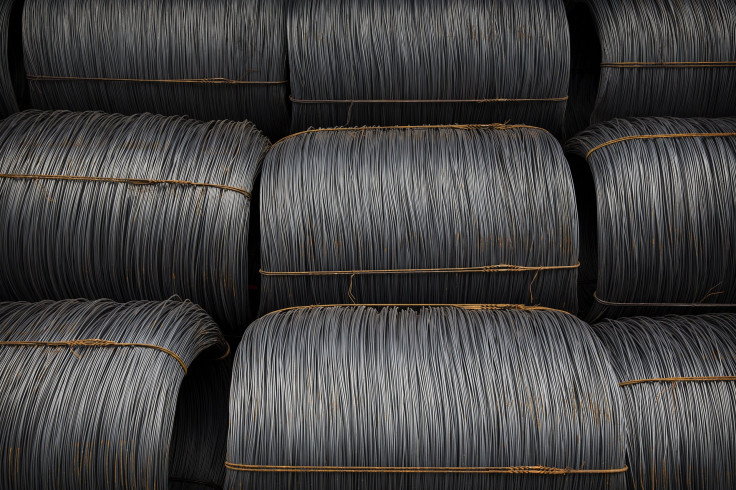US-China Relations News: Trump Warns Meeting With Xi Jinping Will Be 'Difficult'

President Donald Trump said Thursday his scheduled meeting next week with Chinese leader Xi Jinping will be difficult because the U.S. no longer can afford “massive trade deficits and job losses.” Xi is scheduled to spend next Thursday and Friday at Trump’s Mar-a-Lago resort in Florida.
The White House announcement of the visit Thursday said first lady Melania Trump also would be on hand along with Xi’s wife, Peng Liyuan.
Read: South China Sea Patrol By American Aircraft Carrier Strike Group Begins
Trump tweeted Thursday he was going to take the direct approach with Xi.
The left-leaning Economic Policy Institute estimated earlier this year 3.4 million jobs were lost due to the trade deficit with China from 2001 to 2015, nearly three-quarters of them manufacturing jobs. Especially hard hit were the electronics and high tech, apparel, textiles and a range of heavier durable goods industries.
The report said imports from China also blocked the addition of jobs in the transport equipment, agricultural products, computer and electronic parts, chemicals, machinery, and food and beverage industries.
Read: Did Trump Actually Help China By Killing A Trade Deal? Liberal Senators Praise Move
In January, the U.S. exported $10 billion in goods to China but imported $41.4 billion, setting a pace that could eclipse last year’s numbers, the U.S. Census Bureau reported. For 2016, the U.S. exported $115.8 billion in goods but imported $462.8 billion for an annual trade deficit of $347 billion.
Trump has blamed the deficit in part on currency manipulation by China. The yuan is partially fixed to the dollar, making it difficult for U.S. manufacturers to compete against China’s cheaper labor. He has estimated the yuan could by undervalued by as much as 40 percent even though it increased by 2-3 percent annually from 2000 to 2013.
“I think they're grand champions at manipulation of currency,” Trump said in an interview with Reuters last month.
The government also has railed against obstacles China has put up to block foreign imports.
Taking action against China, however, is problematic. Beijing currently holds $1.051 trillion in U.S. debt — that 28 percent of the total public debt owned by foreign countries. If China started dumping U.S. Treasury notes on the open market, it could wreak havoc with U.S. interest rates and throw the U.S. and the rest of the world into recession.
Trump has threatened to impose duties on all countries with which the U.S. runs a trade deficit.
© Copyright IBTimes 2024. All rights reserved.












